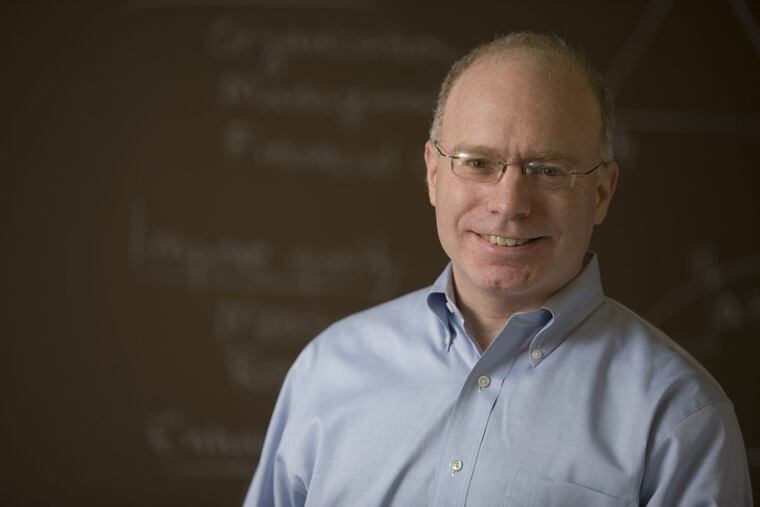Medical residents like shorter shifts. Their supervisors don't.
Penn is leading an ambitious study that is looking at the debate over how hard residents should work more scientifically. Its first results were just published.

Doctors have been debating for years about how hard to make medical residents work.
Some contend that long work shifts help new doctors learn more. They help young doctors see how patients evolve over time, and there's more continuity of care. Others say exhausted doctors are more likely to make mistakes and experience burnout. Then again, the risk of mistakes also goes up during "handoffs," when shifts change and care instructions must be passed along.
A five-year national study, dubbed iCOMPARE and funded by the National Heart, Lung and Blood Institute and the Accreditation Council for Graduate Medical Education, is trying to add more science to the arguments. The University of Pennsylvania's Perelman School of Medicine and Johns Hopkins University are leading the effort, which yielded its first scientific paper in the New England Journal of Medicine on Tuesday.
It found that medical residents liked limits on how long their shifts could be a lot more than their supervisors did. Shorter shifts did not affect how well residents did on tests of medical knowledge or how much time they spent with patients. All of the residents were working a total of 80 hours a week, though, and levels of burnout, which is increasingly recognized as a problem throughout medicine, were high regardless of shift duration.
Penn physician David Asch, iCOMPARE's principal investigator, said more data are coming from the study and it is too early to recommend changes to physician training. However, he thinks residency programs need to pay attention to what residents are saying about their working conditions.
"It is time to take a very serious look to better understand trainee dissatisfaction," Asch said. "I just think we need to address it."
In the early 2000s, there were no limits on how long residents could work. Many were putting in more than 90 hours a week, including shifts up to 36 hours. In 2003, the accreditation council set maximums of 30 hours for a shift and 80 hours for a work week. In 2011, the council further limited shifts to 16 hours for interns (those in the first year of training after medical school) and 28 hours for more senior residents.
The published study surveyed and tracked the activities of interns and residents in 63 internal medicine training programs at large hospitals around the country during their 2015-16 school year. Work likely to be reported next year will evaluate the impact of different types of shifts on residents' sleep and alertness, as well as patient safety.
For the study published Tuesday, residents were split into two groups. They were all limited to 80-hour workweeks. One group adhered to the 16-hour shift limit, while the other had more flexible shifts. The analysis focused on interns, who frequently worked 30-hour shifts in the flexible arm.
The study found that both groups spent the same percentage of time on direct patient care and education, but the interns in the flexible programs were a lot less happy about their work. They were more than twice as likely to say they were dissatisfied with their overall well-being, schedules and time to rest, and 1.5 times more likely to say they were dissatisfied with the quality of their education. Burnout symptoms were high in both groups. Seventy-nine percent of interns in the flexible-hours program and 72 percent of those with limited hours reported moderate or high scores on a measure of emotional exhaustion.
Meanwhile, doctors who ran the training programs gave higher ratings to the flexible-hours approach. Those who led the flexible programs said their interns did a better job of managing patients. Supervisors of the standard-hours programs were far more likely to say they were dissatisfied with the ability of attending doctors to give real-time feedback, with the frequency of patient handoffs and with their opportunities for bedside teaching.
Since the study started, residency work rules have changed again. They are now more like the flexible arm of the study, Asch said.
Several large observational studies done earlier found that long resident hours did not affect patient safety. Studies on how work hours affected the quality of resident education have been small and have had mixed results, Asch said.
ICOMPARE is the first large prospective study, or one that follows residents over time. It "begins to elevate the science" about physician training to that expected for new treatments, he added.